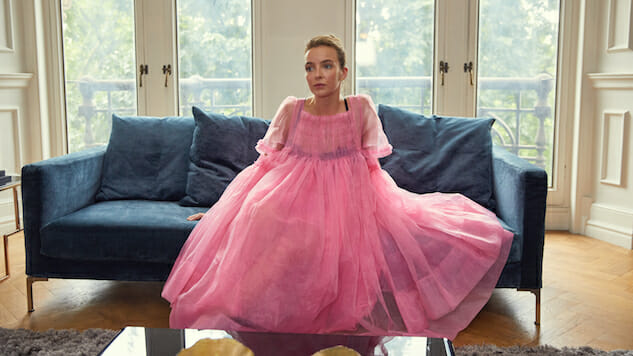The Perfect Petulance of Killing Eve‘s Jodie Comer
Photo: BBC America
Before the conclusion of Killing Eve’s killer first season, the killer in question finds herself in a pickle. Villanelle (Jodie Comer), the wunderkind assassin of Luke Jennings’ novels, and in turn Fleabag creator Phoebe Waller-Bridge’s demented, blackly comic thriller, has gotten herself locked up in a Russian prison to snuff out a potential snitch (and former lover), but before she can escape, she must spend a night in “solitary confinement” with a near-catatonic inmate named Inga. (“My understanding of solitary confinement is that it is solitary,” Villanelle quips to a guard as she enters the cell.) It’s here that Comer whirs into action: Hulllooo, Ingahhh, she says, twisting the line into the willful child’s grudging greeting. Sticking her hands in her pockets, she surveys the situation; she paces to and fro, whines that “it’s not even worth trying,” then suddenly smirks—she has an idea. She leans over Inga, bringing her face this close to her cellmate’s, and sniffs, with perfect, Russian-accented petulance, “You smell of cabbage.”
-

-

-

-

-

-

-

-

-

-

-

-

-

-

-

-

-

-

-

-

-

-

-

-

-

-

-

-

-

-

-

-

-

-

-

-

-

-

-

-








































